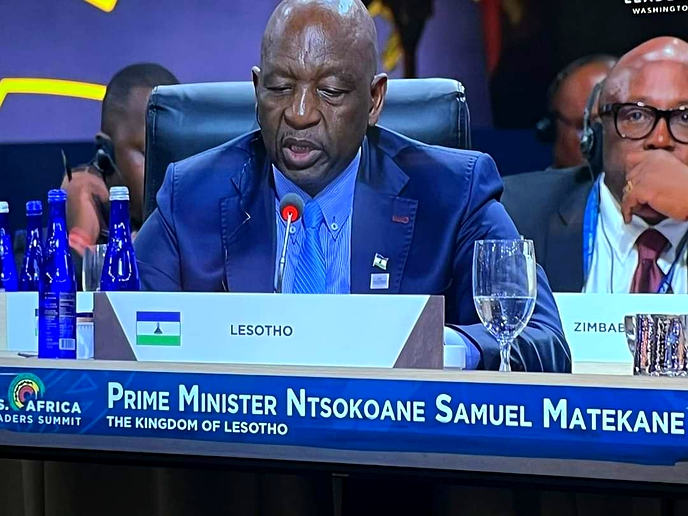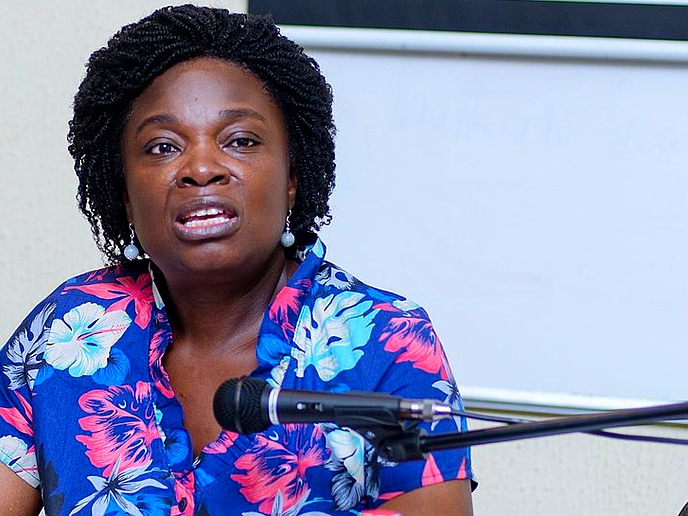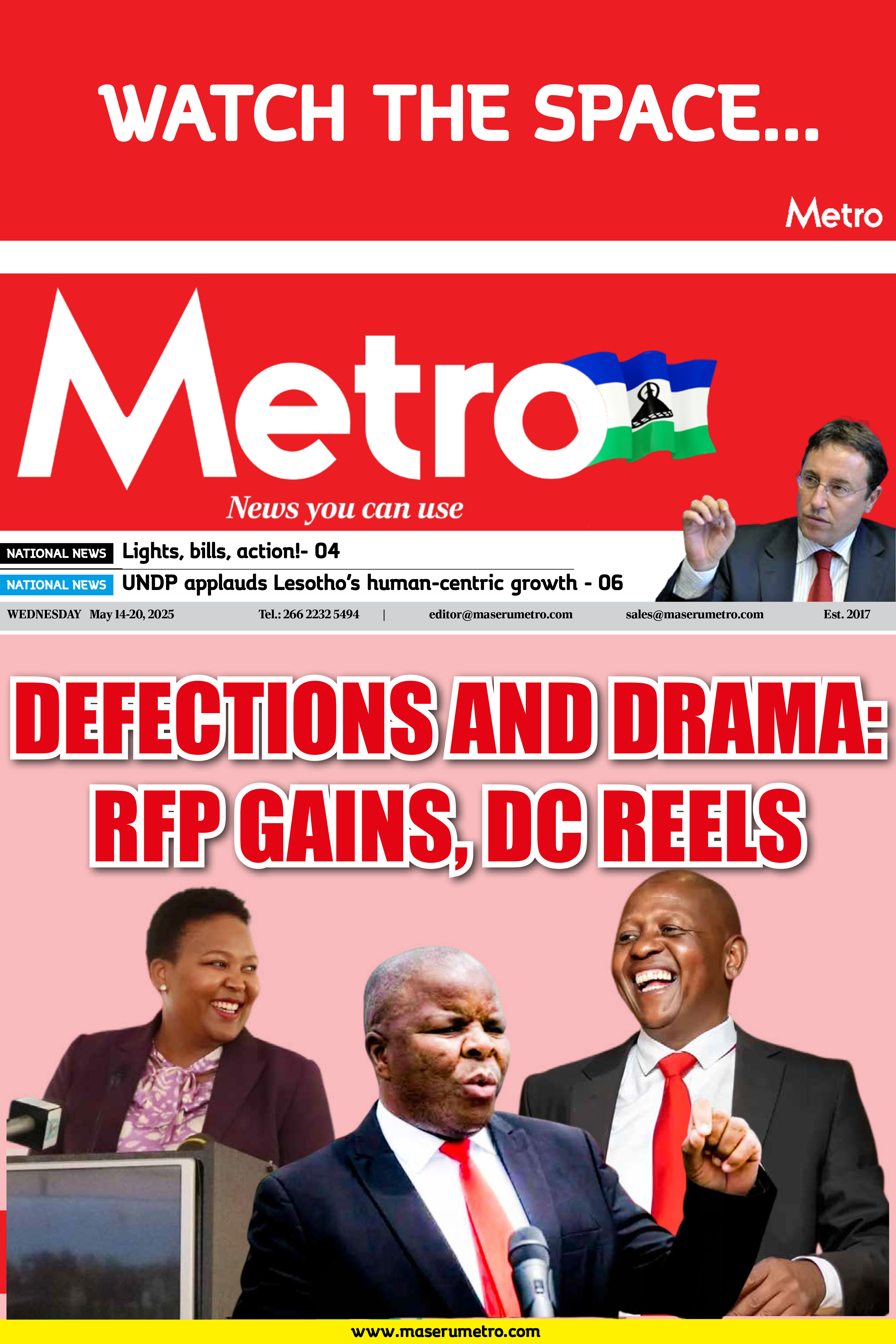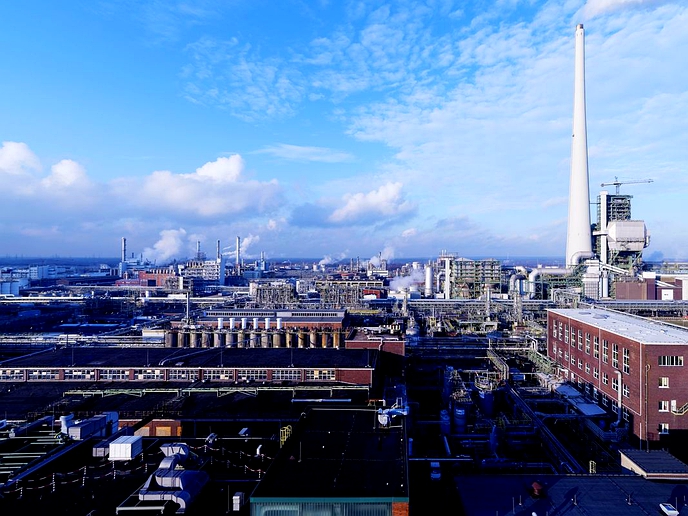We asked our Facebook followers about which three political parties are likely to emerge as three top political parties in terms of popular votes after October 7th general elections. Only 1558 of our Facebook page followers responded and they have spoken out.
politics
Aug. 23, 2022
STAFF REPORTER
4 min read
Metro followers predict election results
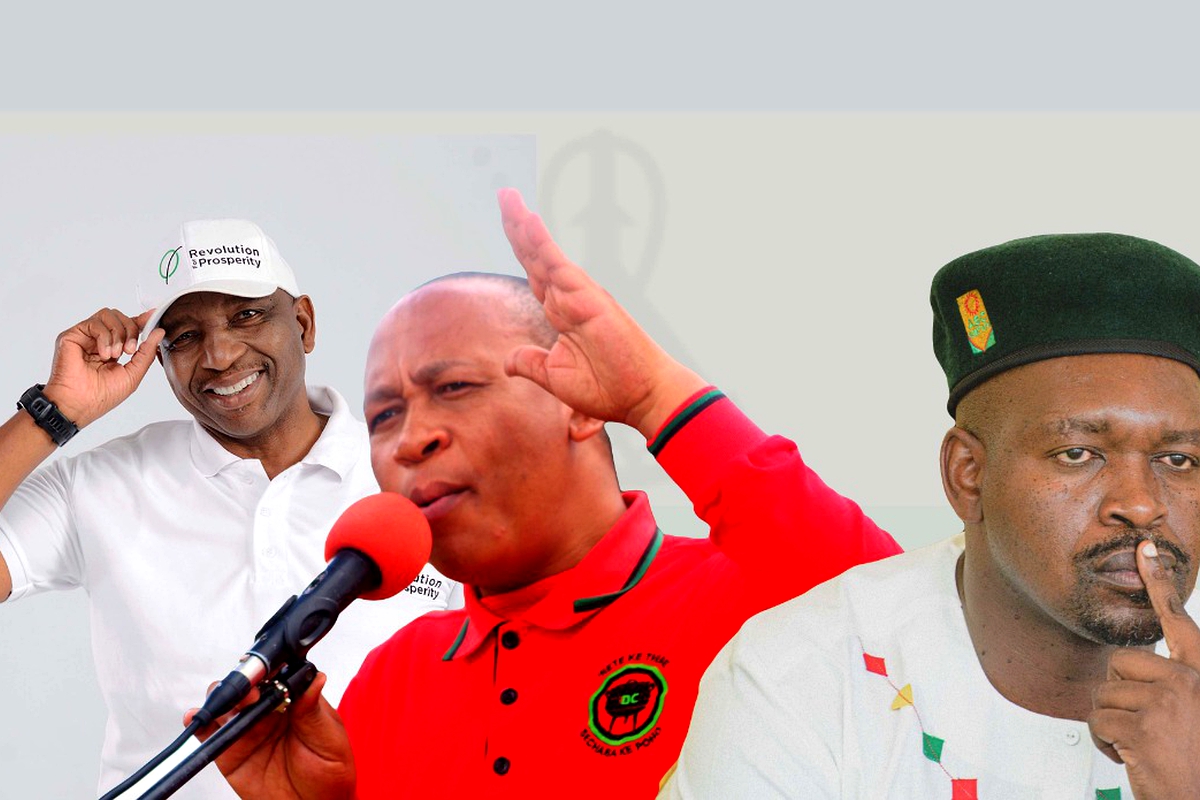
Lesotho’s leading candidates for the October 7 2022 general elections. From left to right: Sam Matekane, Mathibeli Mokhothu, Nkaku Kabi.
Story highlights
All 1558 Metro followers who responded to the question unanimously agree that the following three political parties will emerge as the biggest parties in Lesotho after October 7 general elections: All Basotho Convention (ABC), Democratic Congress (DC) and Revolution for Prosperity (RFP).
Out of the 1558 respondents, 62.5% say RFP, let by Ntsokoane Samuel Matekane a businessman, will be number one, 25% say it will be followed by DC, led by Mathibeli Edwin Mokhothu a career politician, at the second position while 12.5% say ABC, led by Nkaku Kabi a career politician, will be on the third position. Respondents were not asked to give reasons for their predictions; neither were they asked their location, gender or age.
In the 2017 general elections, the ABC became the biggest party by garnering 212 468 total votes. It was followed by DC with 103 491 total votes. At the third position was Lesotho Congress for Democracy (LCD) with 52 052 total votes. They were followed on positions four and five by Alliance of Democrats (AD) and Movement for Economic Change (MEC) with 35 207 and 25 118 total votes respectively.
The RFP was launched on March 22 2022, six months before the anticipated general elections.
According to Afro Barometer, a pan African survey research network’s Survey published on July 27 2022, but conducted in February and March 2022, DC was tipped to win the forthcoming general elections of October 7 by 42% of the total votes, followed on second position by ABC on 21% with the rest of other political parties jointly garnering 38% of the total votes. The survey did not include RFP since it was not yet formed by the time of survey.
Afro Barometer said Basotho were approaching election with grim outlook on economy and democracy.
“When it comes to identification with political parties, more than half (53%) of Basotho say they do not “feel close to” any party, while 44% say they do. Out of all respondents, 16% say they feel close to the Democratic Congress (DC) and 7% to the All Basotho Convention (ABC). These two parties are currently in the coalition government. The Basotho Action Party (BAP), Alliance of Democrats (AD), Basotho National Party (BNP), and Lesotho Congress for Democracy (LCD) each draw 3%. The Afrobarometer team in Lesotho, led by Advision Lesotho, interviewed a nationally representative sample of 1,200 citizens in February-March 2022,” it explained.
Enjoy our daily newsletter from today
Access exclusive newsletters, along with previews of new media releases.
The survey general election that Lesotho will hold on October 7, will be the eighth since the country’s return to democratic rule in 1993. Lesotho, a country of hardly over 2.2million population, is this time going for elections with 65 political parties vying for the highest political office on the land.
The BNP led the country since post-independence in 1966 as the biggest party followed by Basotuland Congress Party (BCP) and Marema-Tlou Freedom Party (MFP) as the third biggest party.
Early results of the first post-independence elections in January 1970 indicated that the BNP might lose control. Under the leadership of Prime Minister Chief Leabua Jonathan, the ruling BNP refused to cede power to the rival BCP, although the BCP was widely believed to have won the elections. Citing election irregularities, Prime Minister Leabua Jonathan nullified the elections, declared a national state of emergency, suspended the constitution, and dissolved the Parliament.
In 1993, Multiparty elections were then held in which the BCP ascended to power with a landslide victory.
In 1997, tension within the BCP leadership caused a split in which Dr. Ntsu Mokhehle abandoned the BCP and established the Lesotho Congress for Democracy (LCD) followed by two-thirds of the parliament. The elections saw a landslide victory for the LCD, gaining 79 of the 80 seats contested in the newly expanded Parliament.
Elections were also held in May 2002, and the LCD won again, gaining 54% of the vote. In 2006 there was a birth of ABC but could not change the dynamics as LCD continued to dominate albeit with reduced numbers. In 2012 the birth of DC changed the dynamics. While the DC still got popular votes, followed by ABC and then LCD, the latter two became majority when they were combined. Come the next election of 2015, ABC emerged bigger followed by DC and then LCD. Come the next election of 2017, ABC came back even bigger, still dominating followed by DC and then LCD.
Are Basotho likely to see a change of the top players after 2022 elections and who will that be? As the saying goes, the proof of the pudding is in the eating.



